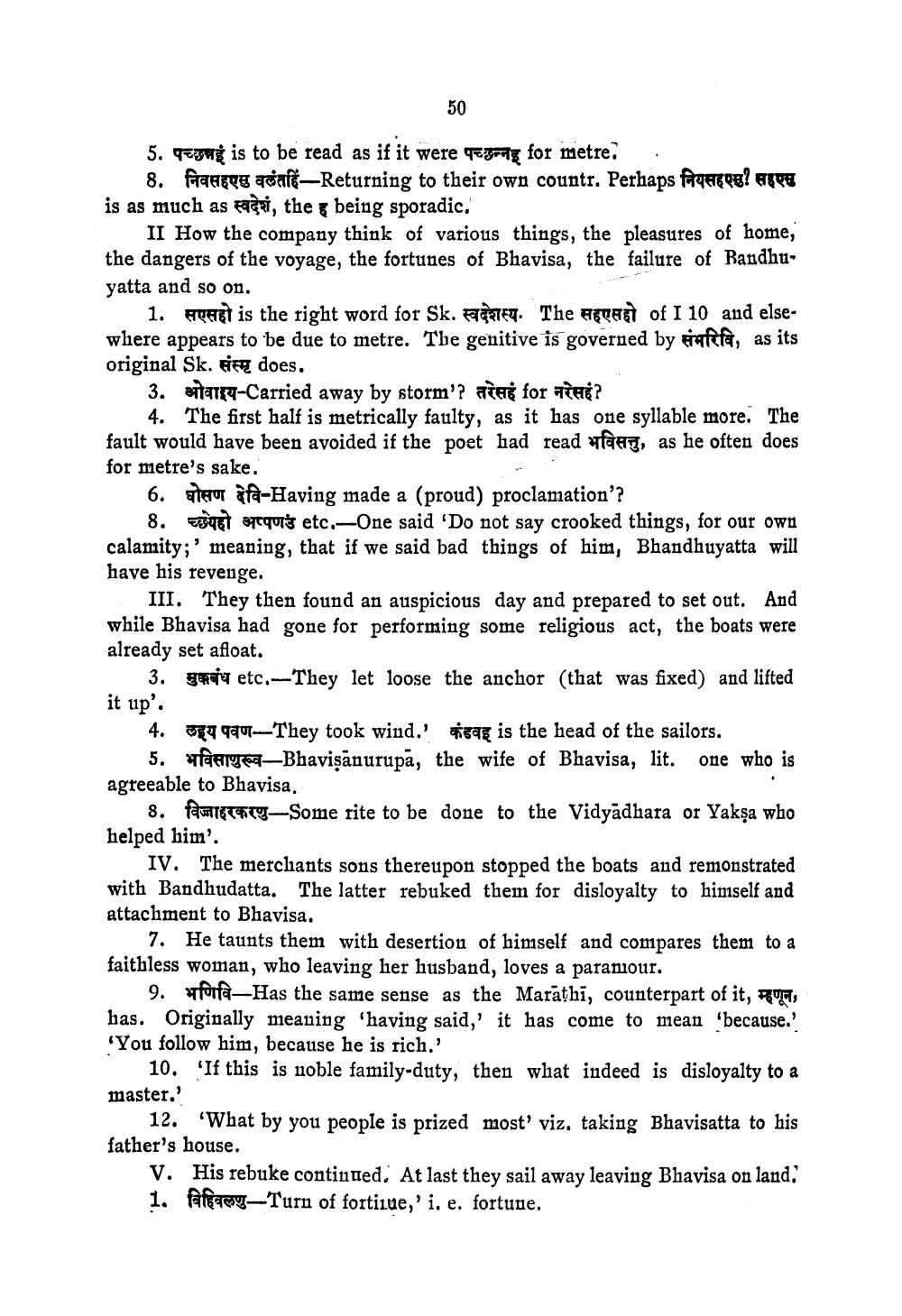________________
50
5. पच्छन्नई is to be read as if it were पच्छन्नइ for metre. .
8. fugge acaft-Returning to their own countr. Perhaps forehead? Ages is as much as agai, the g being sporadic,
II How the company think of various things, the pleasures of home, the dangers of the voyage, the fortunes of Bhavisa, the failure of Bandhuyatta and so on.
1. FEET is the right word for Sk. FABETET. The ATTEET of I 10 and elsewhere appears to be due to metre. The genitive is governed by sufeta, as its original Sk. fit does,
3. ओवाय-Carried away by storm? तरेसहं for नरेसह?
4. The first half is metrically faulty, as it has one syllable more. The fault would have been avoided if the poet had read waag, as he often does for metre's sake.
6. Stero alfa-Having made a (proud) proclamation'?
8. FESTET se quis etc.-One said 'Do not say crooked things, for our own calamity;' meaning, that if we said bad things of him, Bhandhuyatta will have his revenge.
III. They then found an auspicious day and prepared to set out. And while Bhavisa had gone for performing some religious act, the boats were already set afloat.
3. 9*** etc.-They let loose the anchor (that was fixed) and lifted it up'.
4. ET 90-They took wind.' 59is the head of the sailors.
5. ferea-Bhavisanurupa, the wife of Bhavisa, lit. one who is agreeable to Bhavisa.
8. Pamietacy-Some rite to be done to the Vidyadhara or Yakşa who helped him'.
IV. The merchants sons thereupon stopped the boats and remonstrated with Bandhudatta. The latter rebuked them for disloyalty to himself and attachment to Bhavisa,
7. He taunts them with desertion of himself and compares them to a faithless woman, who leaving her husband, loves a paraniour.
9. forfa-Has the same sense as the Marathi, counterpart of it, TT, has. Originally meaning 'having said, it has come to mean 'because.' "You follow him, because he is rich.'
10. "If this is noble family-duty, then what indeed is disloyalty to a master.
12. "What by you people is prized most' viz, taking Bhavisatta to his father's house.
V. His rebuke continued. At last they sail away leaving Bhavisa on land. 1. fafesty—Turn of fortiiue,' i. e. fortune.
VIDA.
.




